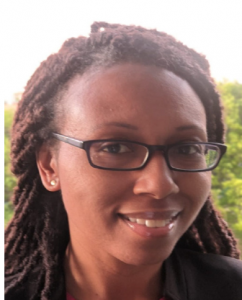Fighting For Justice in Education: How Schools Can Lead the Change Towards a More Equitable World
by Tara Kirton
“Historically, pandemics have forced humans to break with the past and imagine the world anew. This one is no different” (Roy, 2020). The COVID-19 pandemic has had tremendous implications for every aspect of life. School, work, celebrations, and everyday social interactions have all felt the repercussions of the pandemic. While the shutdown called for an immediate pivot from our daily ways of being, it has also offered opportunities for stillness and deep reflection. This moment of pause has provided a chance to think, speak, and act differently. As a parent my hope is that educators will lead the change.
FULLER NARRATIVES ARE A MUST
“Mommy, what are all of the people doing in front of the courthouse?” asked my 12-year-old son one morning last summer. “I think they’re holding signs,” said my younger son, while we looked across the street from our apartment. As I prepared to talk to my children about the scene unfolding, with protesters who had gathered to demand justice following the murder of George Floyd at the hands of law enforcement, I wondered how much they had processed about the racial unrest taking place nationwide. Candid conversations about race and racism were not new in our home. As a Black mother of two tween boys, I began talking about racial identity and topics around social justice with my children from the time that they were in preschool. I realized early on that I needed to instill a strong sense of racial pride to combat the continuous attacks on their humanity encountered on a daily basis through personal interactions and images in the media, and as a result of systemic racism woven throughout society. As
I think about the pandemic as a gateway for imagining schools anew, I want schools to leave behind harmful practices that reduce children to stereotypes and embrace the idea of loving Black and Brown children while fully affirming their identities. I highlight the idea of affirming Black and Brown children intentionally because of the way schools have historically harmed them and denied their brilliance.
 Tara Kirton, MSEd, is a preschool teacher and doctoral student specializing in early childhood education at Teachers College, Columbia University. Kirton is also an adjunct instructor and consultant at Bank Street College. She has consulted in public schools and pre-K centers facilitating professional learning opportunities on a variety of topics. Kirton is currently serving a two-year term as a graduate student executive board member for the American Educational Research Association, Division K (Teaching & Teacher Education). Her teaching and research interests include race, equity, teacher preparation, early childhood education, special education, and partnering with families.
Tara Kirton, MSEd, is a preschool teacher and doctoral student specializing in early childhood education at Teachers College, Columbia University. Kirton is also an adjunct instructor and consultant at Bank Street College. She has consulted in public schools and pre-K centers facilitating professional learning opportunities on a variety of topics. Kirton is currently serving a two-year term as a graduate student executive board member for the American Educational Research Association, Division K (Teaching & Teacher Education). Her teaching and research interests include race, equity, teacher preparation, early childhood education, special education, and partnering with families.